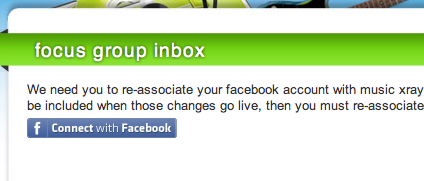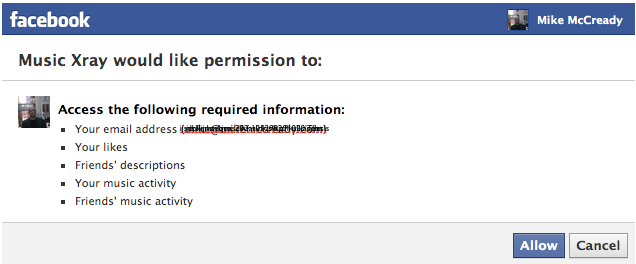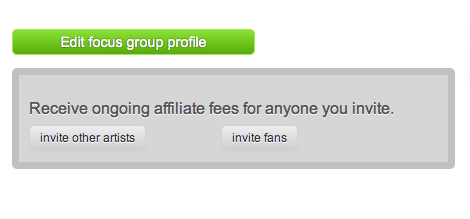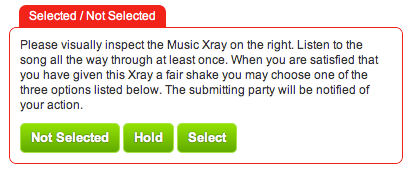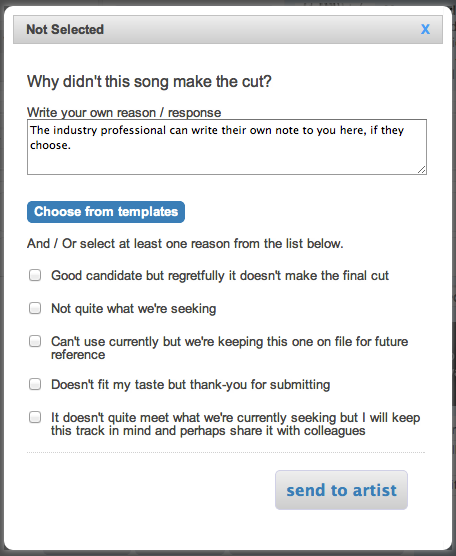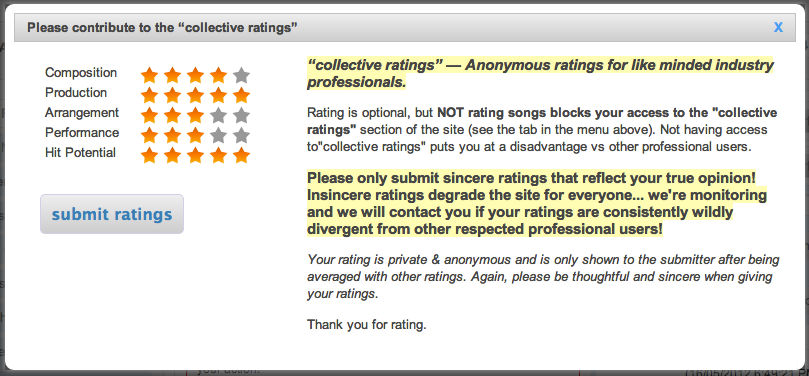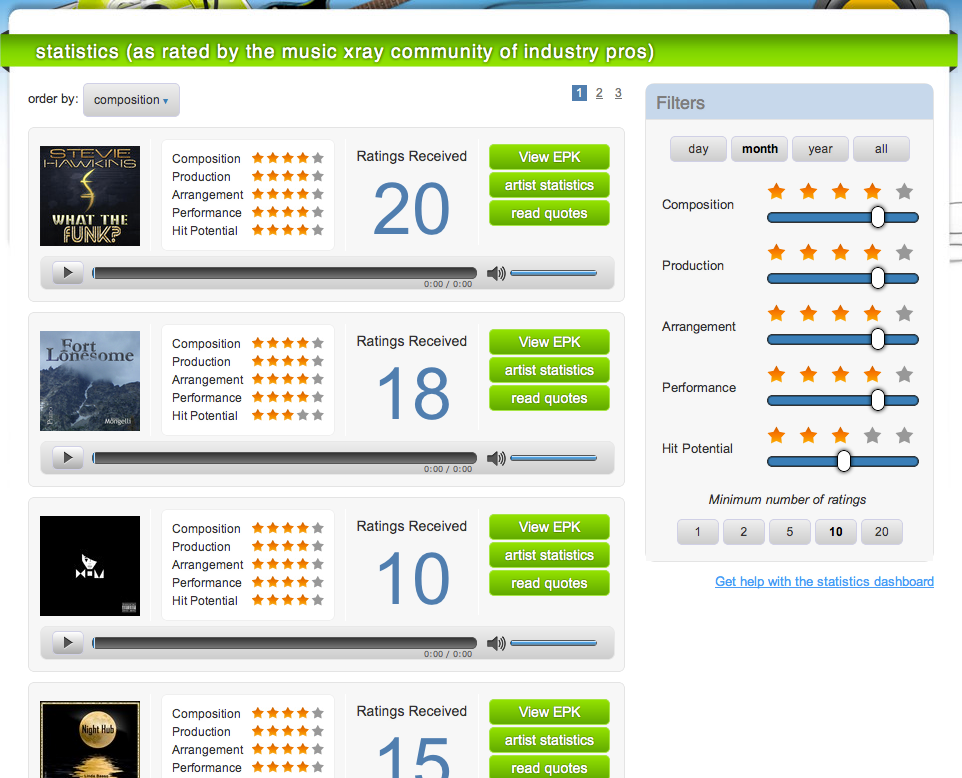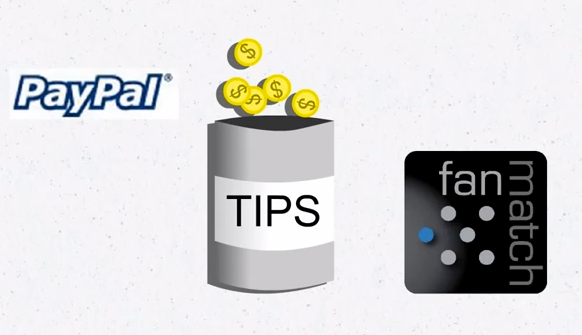What most call “promotion” is really just another way of talking about the time, effort, and money spent acquiring fans. Aside from making great music, building an engaged fan base is probably the single most important thing you need to do as an independent musician. Only then will you have true financial independence and artistic freedom. You should change the way you think about promotion and you must invest in developing a fan base. -Mike McCready
In order to know how much you should spend to acquire a new fan (I’m talking about engaged fans, not the random Twitter follower or Facebook “liker”), you should have a rough idea how much an engaged fan is worth to you over the first year, and perhaps over the course of your career.
(Get in on the Fan Match pre-launch)
I realize that can sound unrealistic. But, while not exact, you can make some fairly easy assumptions; like what if 30% of your engaged fans buys each of your new songs or begins listening to them on heavy rotation on Spotify (or the other streaming services)? Then, what if 50% of your fans show up to at least one gig per year. What if 10% of them buy a T-shirt or some other merch item you sell? If you hone your assumptions to the point where they are somewhat accurate (is it really 30% or is it a bit more/less?), you should be able to predict with at least a little precision how much revenue you’ll generate in a given year.
While you’re doing that, you can also estimate your costs that are directly the result of having the fans (amount to make and buy the merchandise, cost of your CDs, cost of distribution to the digital platforms etc.). The amount of money you have left is your margin. As a general rule, as long as you can acquire each fan for less money than you earn on average from each fan, you’re not paying too much. This may sound cold and unlike the warm and fuzzy relationships you actually build with your fans, but this is how you must think of it because it’s your business. You must think about it kind of like you would think about any investment. But the awesome thing about this investment is you have a high degree of control over how it pays off. If you keep making good music, sell creative and quality merch and hold events which your fans can attend (and all sorts of other things), you can create a much more valuable business with fewer fans than another artist might despite having more fans.
Now, imagine you could go into a record label, a publishing company, or a group of independent investors and you were able to tell them how much it costs you to acquire each newly engaged fan and how much an engaged fan is worth.
Imagine being able to say to yourself,
“My band has 100 engaged fans.
“We net about $70 per year on average from each of our fans.
“So, right now, we have revenue of $7,000 per year.
“But, in order to pay ourselves, record the new music, buy some new equipment, and rent a touring van, we need to have $300,000 of revenue in a year.”
If you do that math, you see that you need about 4,185 more engaged fans to generate that kind of money. What should you do? I do realize this is a simplified equation, but you get my point…
Music Xray’s new service, Fan Match was built to help answer this question.
Let’s say you invest $100 in a new Fan Match campaign. The song of your choice will be sent to 300 potential fans – people who have already told us they like your style and your genre. Then, once they’ve heard your music, we give them the opportunity to become a direct fan of yours at the click of a button. When that happens, you receive their email address and can get directly in contact with that fan. You can manage that relationship however you generally manage your engaged fan relationships.
Now, let’s say that your music is compelling enough that 30% of those who hear it like it enough to become a direct fan. That means that for $100, you would acquire 30 engaged fans. In other words, each fan cost you $3.33 to acquire. That’s a really good deal if each engaged fan is worth $70 to you over the course of a year, not to mention the value of an engaged fan over the course of your career.
Remember though, in our scenario, you need 4,185 additional fans to reach your revenue goal. At $3.33 each, acquiring 4,185 fans will cost you $13,936 via Fan Match.
The point is, you’ll have a projected yearly income of $300,000 if all your assumptions hold true. So, that’s a really good deal!
Obviously, not many struggling musicians have an investible $13,936 on hand. But, if you are able to achieve that on your own, you should.
On the other hand, if you don’t have that kind of cash to invest up front, the good thing about Fan Match is that you can buy small campaigns and see how it goes. Build your base step by step. Learn what works and what doesn’t. You may decide after your first campaign that for the next one, you should use a different song which may acquire new fans more readily and that will drive down your acquisition costs (you’ll acquire more fans for less money). You can do this little by little.
Building an engaged fan base is probably the single most important thing you need as an independent musician. Only if you invest in acquiring one will you ever have true financial independence and artistic freedom. You must invest in developing a fan base. That investment can be made in time (often years), sweat, tears, and money or you can now make that investment via Music Xray. Let us do the heavy lifting and you go back to making great music!.
You can even run small campaigns to test (or prove) your band’s viability. A small Fan Match campaign can be used simply to learn what your fan acquisition costs are and then you can share that information with a label, a publisher, or a group of investors.
Being able to demonstrate your band’s viability in this way, with real numbers, is revolutionary. It’s never been done before and having this kind of information should make it a lot easier to test, identify and demonstrate the merit of investment in the careers of performing musicians and recording artists.
At the very minimum,run a Fan Match campaign simply to find out where you stand. Its is easy for you to acquire fans? If so, keep going. If not, you may need to make some changes or improvements until you’re ready to compete for the attention of music fans. Or maybe you just need to work a different song. We’ve been letting musicians into our pre-launch sessions slowly and to each of you who take advantage of this early offer, we’re giving $25 in credit to spend on submissions plus a lot of personalized attention from our staff as we usher you through your first Fan Match campaign.
Mike McCready
Co-founder & CEO
Music Xray




